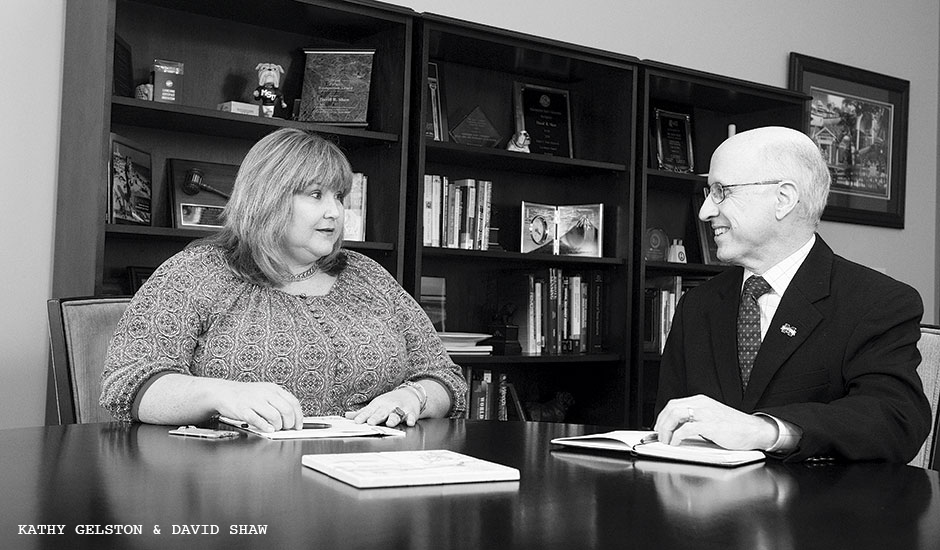
As Mississippi State educates the next generation of business and economic leaders, its research centers, faculty laboratories and outreach initiatives strive to create economic opportunities in the Magnolia State.
“Our state faces many, many challenges, but MSU’s work in economic development is making a real difference every day,” said David Shaw, MSU vice president for research and economic development. “We hire faculty, staff, grad students and undergraduates that want to make a difference in our state and go about their work every day with that in mind. As a land-grant university, our history and culture focus on improving our state–it’s in our DNA.”
MSU is the only university in the state designated as an Innovation and Economic Prosperity University by the Association of Public and Land Grant Universities’ Commission on Innovation, Competitiveness and Economic Prosperity. The designation, attained after a rigorous review process, recognizes Mississippi State for advancing engagement and economic well-being in the state, region and nation.
Much of MSU’s impact in economic development is an outgrowth of one of the university’s strengths–high-quality research. According to a National Science Foundation survey, MSU’s $239.4 million in total research and development expenditures in fiscal year 2016 place the university among the top 100 research institutions in the country. Shaw said MSU faculty and their research programs attract research funding and top industries looking to tap into that expertise.
“We have a strong research program that supports industry in problem-solving, from specific analytical needs to plant and process optimization,” Shaw said. “We also provide expertise on data relevant to business operations, from workforce data to modeling and simulation to solve problems.”
Companies regularly collaborate with MSU researchers in a variety of fields, including mechanical engineering, computer science, aerospace engineering, veterinary medicine and agriculture. For example, because of MSU’s aerospace expertise, Boeing selected MSU to host its Stitched Resin Infused Composite Research Center and donated $3 million in equipment to the Raspet Flight Research Laboratory. Insitu, a Boeing subsidiary that focuses on unmanned aircraft systems, opened an office in MSU’s Thad Cochran Research, Technology and Economic Development Park in 2017.
The Golden Triangle region that comprises Starkville, Columbus and West Point has received national attention for its economic development success, which includes nearly $6 billion in industrial investments in just over a decade. Joe Max Higgins, who has led the Golden Triangle Development Link for 15 years, said that while companies may not choose to locate in the area solely because of MSU, the university is involved in almost every step of the recruitment process.

During visits to the region, aerospace companies like Airbus tour facilities such as Raspet, while automotive companies such as Yokohama Tire and PACCAR can get a firsthand look at MSU’s Center for Advanced Vehicular Systems.
As MSU continues to grow its enrollment, Higgins and other economic developers can tout the availability of highly qualified employees to handle increasingly complex manufacturing processes. Additionally, the cultural events provided by the university, such as concerts and Southeastern Conference sports, help showcase the area’s quality of life and entertainment options.
“We can go down to CAVS and they can see students working on the EcoCAR,” Higgins said. “You go in there and they’re tooling on an extremely advanced vehicle and they’re writing code for a car system. That stuff is all way over my head, but when the student sits there and explains what they’re doing to a company that’s technologically advanced, it checks the box.”
In addition to providing potential employment for MSU graduates, companies locating in the Golden Triangle also work with the MSU Career Center to provide internship and co-op positions for students. Industry leaders also see the value in MSU’s teaching and research. For example, after PACCAR announced plans to build an engine manufacturing facility in Lowndes County in 2007, the company funded an endowed professorship in the James Worth Bagley College of Engineering that helps the college recruit and retain leading scholars.
Kathy Gelston, Mississippi State’s associate vice president for corporate engagement and economic development, said companies almost never come to MSU with a problem the university can’t help them solve.
“We have areas where we really punch above our weight, such as computational fluid dynamics and supercomputing,” Gelston said. “We have plans in the research park to expand the High Performance Computing Collaboratory and increase our computing capacity. I think that gives us tremendous opportunities. When a university has that type of data capability, it opens up some research opportunities that most universities can’t accommodate.”

SUPPORTING NEW BUSINESSES AND STATE ECONOMIC DEVELOPMENT
Mississippi State’s alumni ranks contain many business owners, CEOs and executives that provide business growth in the state. Two proud members of the Bulldog family lead efforts to promote economic development in their home state.
In 2015, Gov. Phil Bryant appointed Tupelo native and MSU agricultural economics graduate Glenn L. McCullough Jr. as executive director of the Mississippi Development Authority. Earlier this year, alumnus Scott Waller was named president and CEO of the Mississippi Economic Council, the state’s chamber of commerce.
Waller attended MSU in the 1980s but left school early to begin a successful journalism career. He later joined the Mississippi Economic Council and led its communication and government affairs efforts before being named CEO. In 2010, Waller earned his bachelor’s degree from Mississippi State after completing coursework through the university’s distance education programs.
“Mississippi State is a very special place to me, and it’s more than just a place to come watch football or baseball,” Waller said. “More importantly, I love what MSU does for our state, because what we have as a university is the opportunity to make an impact on people’s lives. When you get to that point where you’re having an impact all across the state, and ultimately across the nation, it shows the value of what the university has.”
McCullough, a 1977 alumnus, has held several leadership roles in government and economic development. He has served as executive director of the Appalachian Regional Commission and was elected mayor of Tupelo in 1997. In 2001, McCullough was appointed chairman of the Tennessee Valley Authority board of directors by former President George W. Bush.
McCullough said Mississippi’s research universities are key partners in economic development as they enhance the pool of potential employees and provide expertise in key industrial sectors.
MDA works closely with Mississippi State administration and research personnel to attract private investment and new careers for Mississippians.
In his current position at MDA, McCullough oversees team members who provide support for communities, businesses, industries and leaders to help them reach their goals in Mississippi.
“In Mississippi, you’re going to see continued growth in the automotive, aerospace and agriculture industries, and MSU is on the leading edge in each of these sectors,” McCullough said. “Mississippi State is a fundamental advantage in community and economic development.”
“At MDA, I have a unique opportunity to help our economy grow at a faster pace,” McCullough added. “Governor Bryant works 24/7 to grow Mississippi’s economy. We depend on MSU and other universities. At every level, we play to win as one team.”

In addition to its extensive work with economic development agencies and existing companies, the university also helps turn the ideas of students and faculty into new companies through several initiatives that support entrepreneurship.
Housed in the College of Business, the MSU Center for Entrepreneurship and Outreach provides mentorship and guidance to approximately 100 student entrepreneurial teams. The center has developed a program through which students can earn up to $7,500 in seed money to develop their ideas into a business. Wade Patterson, an MSU alumnus, recently launched the Bulldog Angel Network, which connects entrepreneurs with potential sources of venture capital funding.
As part of the $100 million invested in the Thad Cochran Research, Technology and Economic Development Park, MSU has created a business incubator that provides low-cost office space for startup companies. The same building houses the Veterans Business Outreach Center, which provides business training for veterans of the U.S. armed forces.
Gelston said smaller “mom and pop” companies are the backbone of the Mississippi economy, and College of Business students can work with small and medium-sized companies to help them develop a comprehensive business plan that includes market research and financing plans along with realistic risk assessments. These services can also provide assistance to university faculty who have developed intellectual property through their research. This property, once patented and licensed to the faculty, can be developed into startup companies in their area of expertise.
“We can license that intellectual property and it can become the kernel of a new company,” Gelston said. “A catfish vaccine was developed by one of our Extension faculty and that catfish vaccine has increased catfish growth by almost 20 percent. Now the state has a new problem – we have more catfish than we have catfish processing facilities. That creates the opportunity for a company here in Mississippi to process those catfish and hire employees, pay taxes and grow our economy. Those are really important things.”
 REACHING OUT ACROSS THE STATE
REACHING OUT ACROSS THE STATE
As with most aspects of the university, outreach is a key component of MSU’s economic development efforts. McCullough said MSU Extension’s programs make the state a more attractive place for people and companies to locate.
“Economic development happens in successful communities, and Extension makes communities the best they can be,” McCullough said.
MSU’s National Strategic Planning and Analysis Research Center was the key entity that brought together the Mississippi Statewide Longitudinal Data System, which provides high-quality data about Mississippi’s workforce. Economic developers say that data is crucial when companies are looking to locate in a rural area and need to know they can fully staff potential facilities. The center has also developed the Mississippi Works app, which lets employers post available jobs and job seekers can search for open positions in the state.
CAVS’ facility in Canton, CAVS Extension, provides direct assistance to manufacturers across the state and helps them solve issues in their industrial facilities. Since 2006, CAVS Extension has had an approximately $6 billion impact on the Mississippi economy, including 4,753 jobs created or retained.
Gelston, who worked for 11 years at MDA before coming to MSU, regularly meets with local economic development agencies from across the state to provide direct assistance or share expertise.
“We support local economic development organizations across the state,” Gelston said. “Dr. Shaw and I both have been known to make presentations, explain the many ways the university can work with industry and also just serve as additional staff and assistance when our economic development partners need that. In addition to helping them, we want to tell them about MSU’s capabilities so that they can tell the story when they talk to companies.”
The story Gelston aims to continue to tell is one where MSU keeps creating jobs, enhancing the quality of life in Mississippi and providing opportunities for students and alumni, all through the university’s consistent focus on research, learning and service.
By James Carskadon | Photography by Beth Wynn
